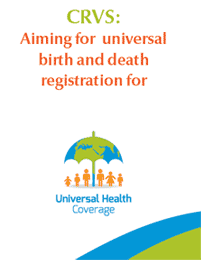Before undertaking a detailed CRVS reviews, it is useful to first carry out a rapid assessment to quickly evaluate the strengths and weaknesses of a current CRVS system. The results of this rapid assessment could then be used to make the case for a more detailed comprehensive assessment.
Between 12 November 2013 and 21 January 2013, 21 countries in the Eastern Mediterranean Region (excluding Egypt, which started the assessment in 2011) have undertaken the rapid assessment by organizing multistakeholder meetings. The rapid assessment consists of 25 questions covering 11 CRVS domains assessed by scoring all questions with stakeholder consensus. The final score is used to classify countries into broad groups according to the functionality of their CRVS systems.
Summary of findings
Around 40% of the countries have either inadequate or weak CRVS systems. Only a quarter have satisfactory CRVS systems that produce data of sufficient quality to adequately cover the needs for policy decision-making and for monitoring the impact of interventions and development programmes. However, the systems in these countries serve only 5.3% of the population of the Eastern Mediterranean Region. Among countries with “Satisfactory” CRVS systems, the quality of cause-of-death data and qualifications and training of coders and quality of coding are the main concerns. Countries with inadequate or weak system had low scores in all domains. Countries with a functional system, had average scores below 2 (67%) in areas related to ICD-compliant practices and certification, quality of cause-of-death data and coder qualification and training, including quality of coding.



